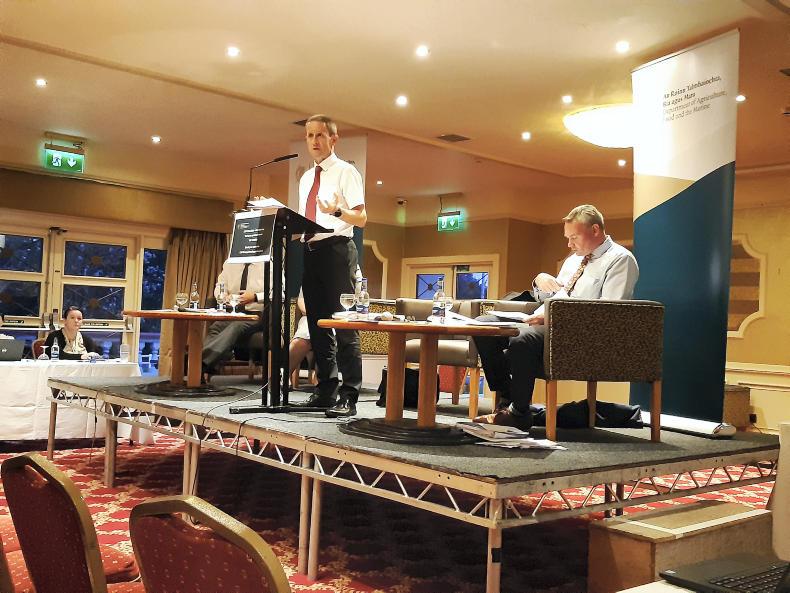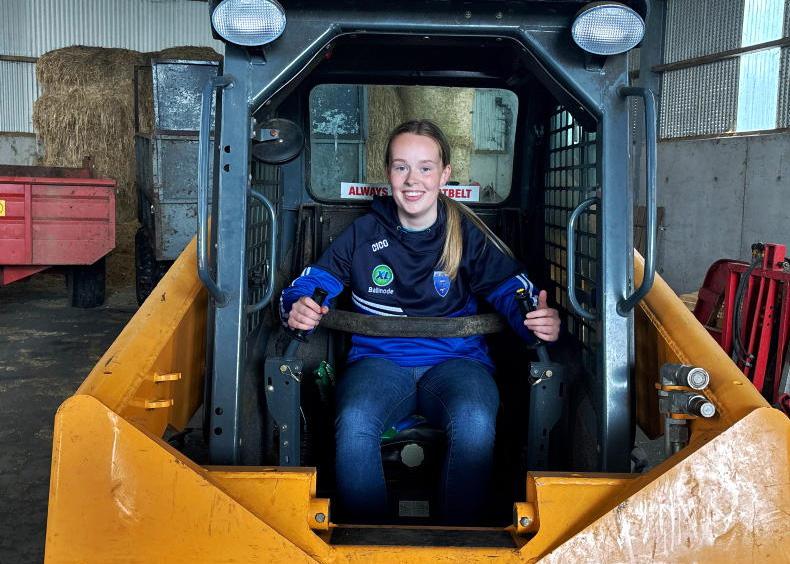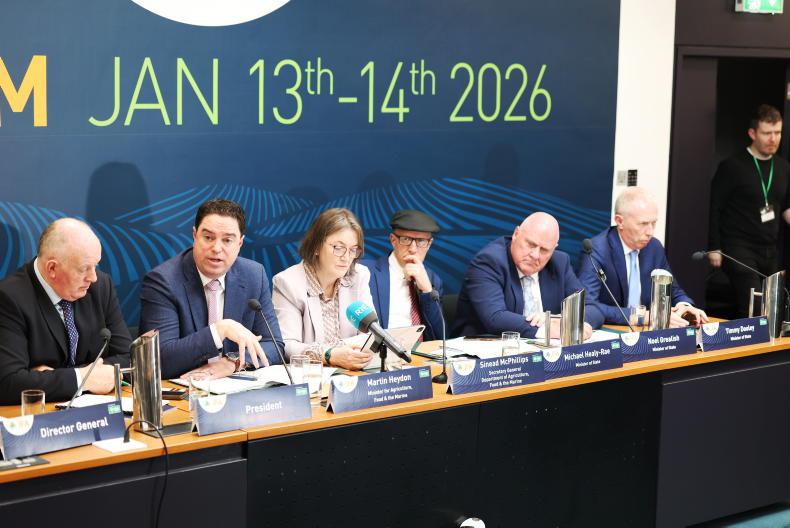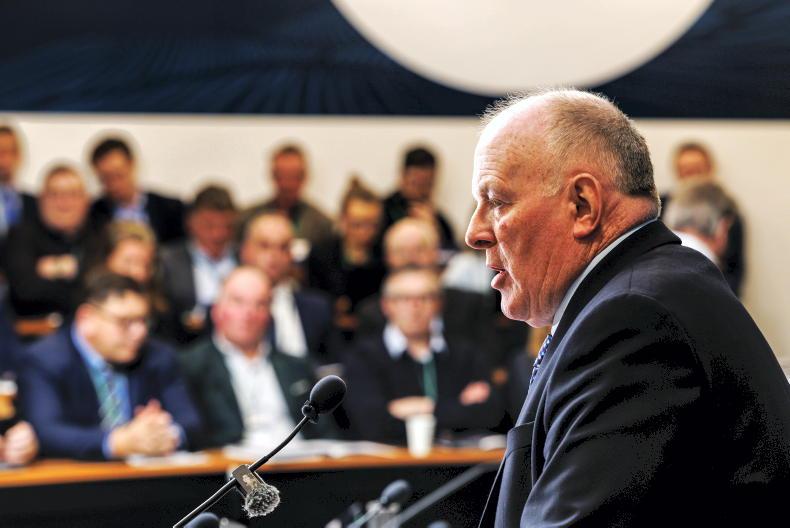Some farmers reacted angrily to proposals that payments in the next Common Agricultural Policy (CAP) would continue to be redistributed from big to small farmers post-2020.
“You’re taking money off productive farmers and handing it over to non-productive farmers,” one farmer told Department of Agriculture officials at a Department consultation meeting in Mitchelstown.
“You’re making viable holdings unviable. It seems to me that you’re not supporting the full-time farmer at all.”
Eco scheme
Under current proposals, there would be an eco scheme in Pillar I and some farmers were unhappy with this.
It will be optional for farmers to enter the scheme but if they do not they will lose a significant portion of their direct payment.
“Pillar I money should stay as Pillar I money. Why should I leave sectors of my farm unproductive?” the farmer asked.
“That’s like telling hotels or restaurants to leave 10% of their business idle.”
As proposals are still under discussion ahead of the next CAP, the Department is running a series of CAP consultation meetings to get farmers’ input.
We're in Mitchelstown tonight where @agriculture_ie is holding a CAP consultation meeting and asking farmers for their views. pic.twitter.com/g4OHTSmi0x
— Farmers Journal (@farmersjournal) September 26, 2019
Assistant general secretary Paul Savage said he took on board what the farmer said but defended the Departments role in developing CAP.
“In terms of shifting money from one farmer to another, that’s been in train since the last CAP reform,” Paul said, adding that the impact of convergence could have been much worse if the Department hadn’t interceded to lessen the blow to farmers’ payments.
He said that at the time, “the broader concern was that we’d have fairness in the system. It was a genuine attempt to try to create a fairer system”.
Hard truths
Farmers attending a CAP consultation meeting in Mitchelstown were handed some hard truths by Department of Agriculture officials.
“Our animal numbers are up, our fertiliser sales are up, are soil fertility isn’t really going anywhere, the last report from the EPA showed our water quality was down by 3%,” Niall Ryan from the Department’s nitrates division told farmers.
“Agriculture in Ireland is responsible for 33% of our greenhouse gas production. Agriculture is responsible for 99% ammonia emissions – caused mainly by slurry spreading.”
In the context of climate change, farmers were told that much more would be expected of them in the next CAP.
Pillar I and II
Pillar I will have an eco scheme and Pillar II will have an agri-environment scheme that will be mandatory for member states to introduce but voluntary for farmers to join.
“The eco scheme will be an annual payment – maybe an annual payment per hectare,” Niall said.
“In the design of these eco schemes we want eco schemes that farmers will engage with.”
He warned farmers that to obtain Pillar II payments they would have to go a step higher than basic legislative measures set out.
“You can’t pay the farmer to do the same thing in the eco scheme as the agri-environment measures.”
In terms of payments, he said that the formula was: “Payment based on the cost the farmer puts in and income foregone.”
Sharon Murphy from @agriculture_ie explains to farmers that current proposals say at least 2% of the direct payments envelope must go to generational renewal schemes #CAP pic.twitter.com/b0LFySSmZx
— Farmers Journal (@farmersjournal) September 26, 2019
“There will have to be a five- to seven-year commitment for the scheme. Traditionally, we’ve run five-year schemes but the proposals allows us to run it for seven.”
Niall’s emphasis on climate were echoed by his colleague Sharon Murphy who said that environmental targets would be set and measured by Brussels.
She also raised the issue of the overall CAP budget and the proposed 5% cut which she said the Department was opposed to.
She explained to the group that the Basic Payment will be renamed as BISS and have “higher environmental ambition in it”.
Capping
One of the proposals that caught farmers’ attention was the proposal to cap payments to bigger farmers.
“The new proposal is that there would be mandatory capping on payments – this would include young farmer payments,” she said.
She said it had been suggested by officials in Brussels that the proceeds released from capping would go into a redistributive scheme.
Funding
But she said that the Department didn’t see “that capping would release a lot of funding because we don’t have farmers at that payment level”.
She admitted that some proposal names, such as Complementary Redistributive Income Support for Sustainability, were wordy, but that the proposal intended to “transfer payments from larger to small or medium-sized farmers”.
She described it as “being like front-loading”.
Farmers can have their input on the Department’s consultation by clicking here.










SHARING OPTIONS